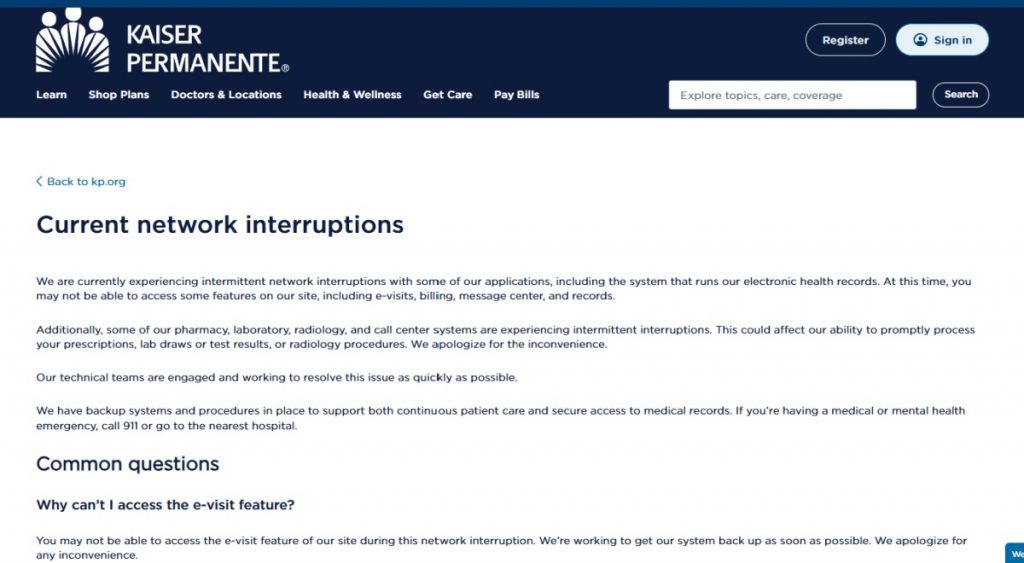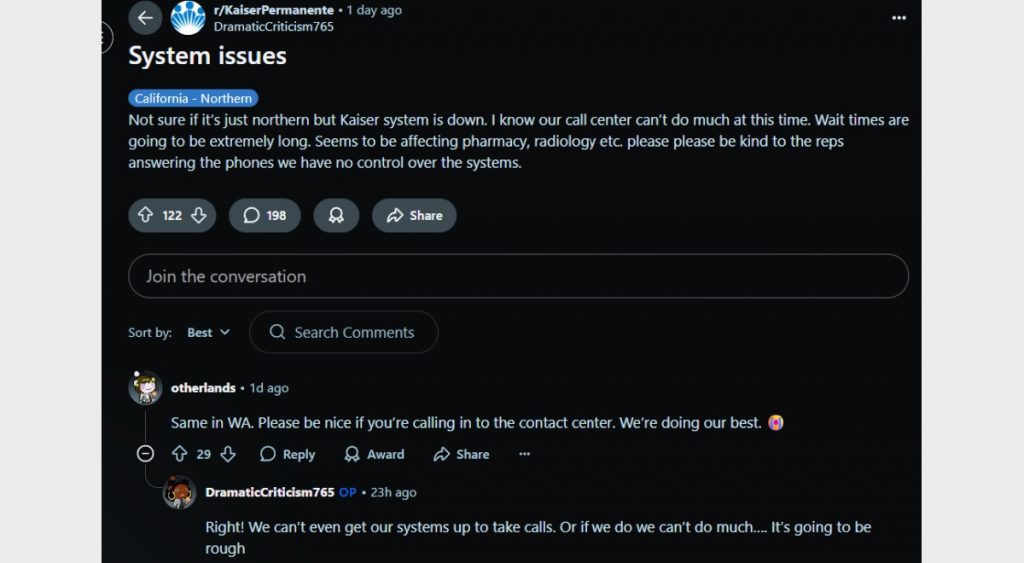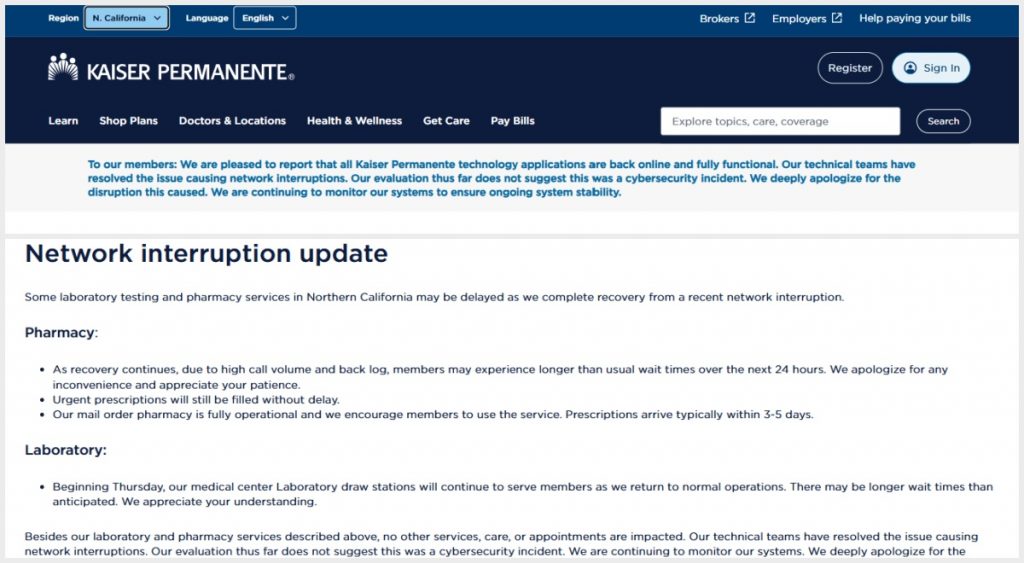Kaiser Permanente, the largest nonprofit health plan in the United States, faced widespread network outages on Wednesday that disrupted electronic health records (EHRs) and critical patient services across its national network of hospitals and medical offices. The issue, which lasted through much of the day, caused service slowdowns, forced staff to revert to manual operations, and triggered concern across multiple states.
The Oakland-based healthcare giant confirmed the incident on its website Wednesday evening, stating:
“We are currently experiencing intermittent network interruptions with some of our applications, including the system that runs our electronic health records.”
The disruption affected numerous patient-facing systems, including e-visits, billing portals, the patient message center, and medical records access.
“At this time, you may not be able to access some features on our site, including e-visits, billing, message center, and records,” the statement read.

The outage also impacted backend operations essential for patient care. Systems supporting pharmacy services, lab processing, radiology, and call center operations all reported interruptions. Some pharmacy workers reportedly resorted to using pen and paper to process prescriptions and patient requests.
“This could affect our ability to promptly process your prescriptions, lab draws, test results, or radiology procedures,” Kaiser stated, while apologizing to patients for the inconvenience.
Nationwide Disruption Confirmed by Employees Across States
The network interruptions were not isolated to a single region. Employees from different states, including California and Washington, reported parallel issues on social media. One Kaiser employee in Northern California posted on Reddit:
“Not sure if it’s just northern but Kaiser system is down. I know our call center can’t do much at this time. Wait times are going to be extremely long. Seems to be affecting pharmacy, radiology etc. Please please be kind to the reps answering the phones—we have no control over the systems.”

Another employee from Washington responded:
“Same in WA. Please be nice if you’re calling in to the contact center. We’re doing our best. 😭”
No Signs of Cyberattack, But Investigation Ongoing
Following growing speculation about the cause of the disruption—particularly in light of the increasing number of ransomware incidents in healthcare—Kaiser issued a follow-up statement on Thursday. The organization confirmed that systems were back online and that the issue was not the result of a cyberattack.
“We are pleased to report that all Kaiser Permanente technology applications are back online and fully functional,” Kaiser wrote on its website.
While Kaiser did not share the specific cause of the outage, spokesperson Kathleen Campini Chambers clarified to The Verge that the disruption stemmed from an issue at one of the organization’s data centers. The company noted that it was continuing to monitor systems for stability and reiterated:
“Our evaluation thus far does not suggest this was a cybersecurity incident.”

Nonetheless, the organization acknowledged that some patient services—particularly those related to lab testing, pharmacy operations, and contact centers—could still experience delays over the following 24 hours due to backlogs.
A Reminder of the Sector’s Vulnerabilities
The outage followed a major ransomware attack on Kettering Health Network in Ohio just a week earlier, which forced the cancellation of thousands of patient procedures across 120 medical facilities and nine hospitals.
Although Kaiser’s incident did not involve a cyberattack, it underscores how technical failures—whether due to infrastructure issues or external threats—can rapidly impact healthcare delivery on a national scale.
The timing also brings back memories of Kaiser Permanente’s April 2023 data breach. That incident affected over 13.4 million patients when third-party trackers installed on its websites and mobile applications shared personal data with vendors such as Google, Microsoft Bing, and Twitter (now X). Kaiser explained at the time:
“The data from this breach was leaked via third-party trackers installed on its websites and mobile apps, which we confirmed was used to share patients’ personal information with third-party advertisers.”
Operational Scale of Kaiser Permanente
Founded in 1945, Kaiser Permanente operates 40 hospitals and over 600 medical offices across eight states and the District of Columbia. The organization provides care for more than 12.5 million members and employs over 100,000 doctors and nurses, along with more than 240,000 support staff.
Its network spans California, Colorado, Georgia, Hawaii, Maryland, Virginia, Oregon, Washington, and Washington, D.C.—making any system-wide disruption a significant event with nationwide implications.
Services Restored, But Backlogs Remain
By Thursday, Kaiser had resumed normal operations across all technology platforms but continued to warn of possible delays due to high call volumes and unprocessed tasks from the previous day.
“All other technology applications are back online and functional,” the company stated, while advising patients to remain patient as backlogs are cleared.
Kaiser reiterated its apology for the disruption and emphasized that patient health and safety remain its highest priority.









